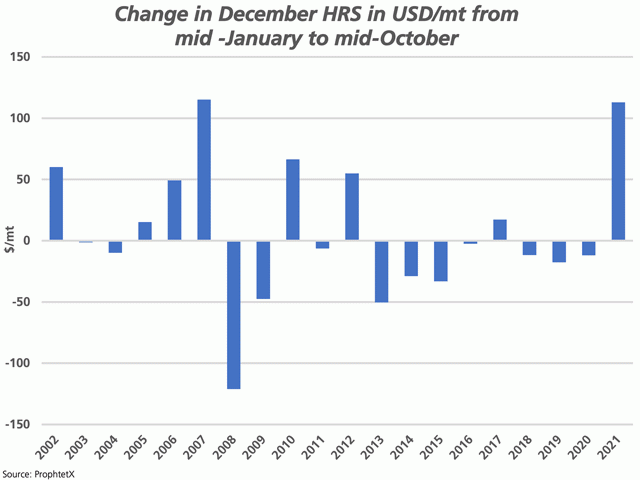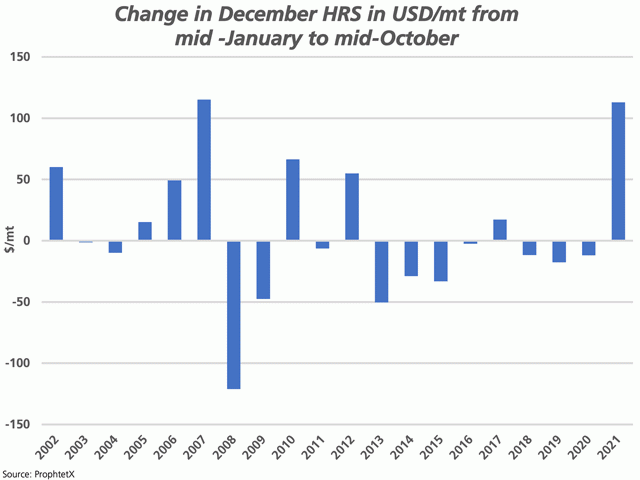Canada Markets
Should New-Crop HRS be Priced?
With dry conditions lingering on the Prairies, the idea of pricing new-crop spring wheat may be hard to accept with the 2021 drought and resulting contract issues still top of mind for many.
The attached chart looks at the move in the December MGEX hard red spring wheat contract from the middle of January to the middle of October in the same year to identify the potential risks/rewards of pricing early in the calendar year versus waiting until mid-October, or after harvest on average.
P[L1] D[0x0] M[300x250] OOP[F] ADUNIT[] T[]
During the 20 years from 2002 to 2021, the average December price rose by an average of $7.45/metric ton USD from mid-January through mid-October. As seen on the attached chart, this data ranges from a $115.19/mt gain in 2007, to a $121.07/mt drop in 2008, just one year later.
In eight of the 20 years, or 40% of the 20 years in question, the December future contract rallied during these nine months, moving higher by an average of $61.45/mt. During the 12 years, or 60% of the years in question, where the price fell during this period, the average drop was $28.55/mt.
Of the 20 years looked at, circumstances led to a sharp move of more than $100/mt in three years, with a $115.19/mt increase in 2007, a $121.07/mt drop in 2008 and a $112.99/mt increase in 2021. When these three years are eliminated from the analysis, the December future rose by an average of just $2.47/mt during the 17 years in question.
Given this scenario, the December future contract rose by an average of $43.91/mt during the six years where prices rose during the nine-month period, or 35% of the 17 years in question, while fell by an average of $20.13/mt during the 11 years where prices moved lower during the nine months, or 65% of the 17 years in question.
Cliff Jamieson can be reached at cliff.jamieson@dtn.com
Follow him on Twitter @Cliff Jamieson
(c) Copyright 2022 DTN, LLC. All rights reserved.






Comments
To comment, please Log In or Join our Community .